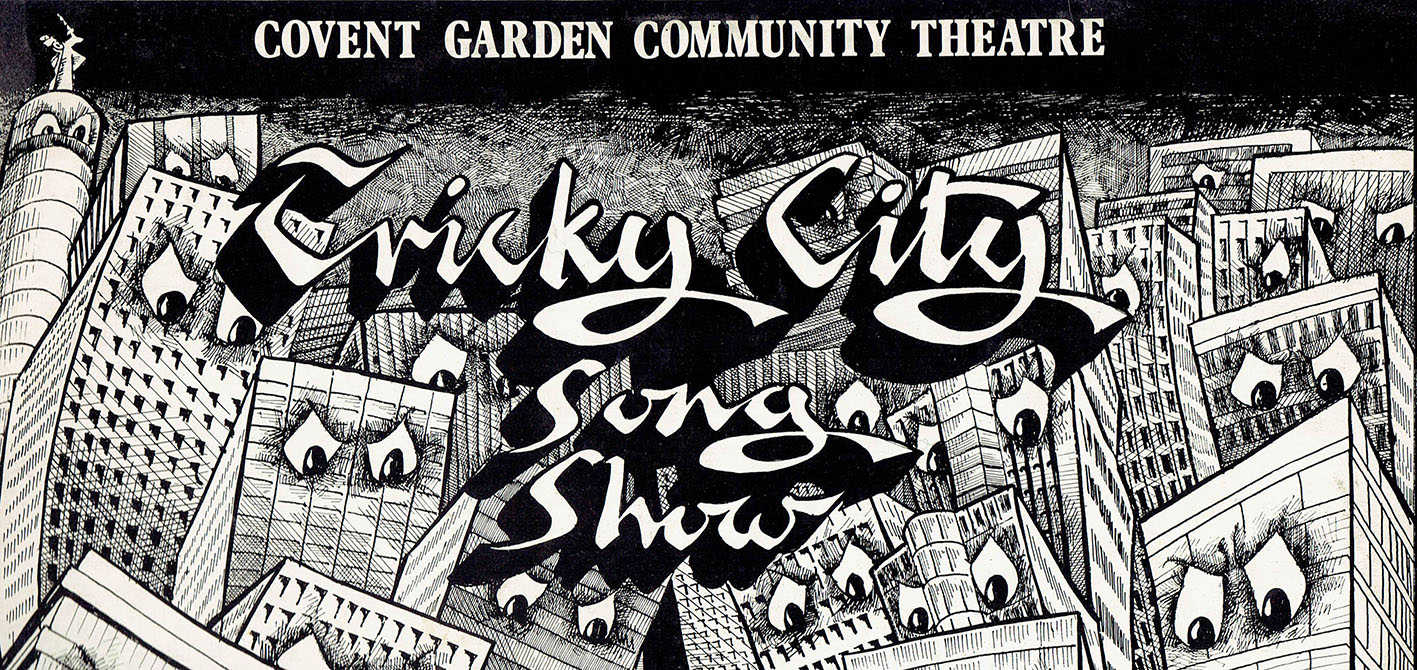![]()

 Way back in 1979 a satirical review that called itself the Covent Garden Community Theatre asked me to produce and record an LP of some of the numbers they’d been performing. I went along to see their show and immediately decided that they were so good and so interactive with their audience that the recording should be done live. In the event, there were only a couple of retakes of individual songs and no intercutting whatsoever—what you hear is exactly what happened!
Way back in 1979 a satirical review that called itself the Covent Garden Community Theatre asked me to produce and record an LP of some of the numbers they’d been performing. I went along to see their show and immediately decided that they were so good and so interactive with their audience that the recording should be done live. In the event, there were only a couple of retakes of individual songs and no intercutting whatsoever—what you hear is exactly what happened!
Listening to the record again after thirty-five years, it is still so up-to-date and so much better than what’s even being attempted now that I thought it should go up here. Listen, gnash your teeth and then go on the attack!
Side 1
Side 2
Local Government Housing Programme Blues
And if you want to listen to them as performed, with their perfect sense of continuity, here are Side 1 and Side 2 in their glorious entirety!
Covent Garden Community Theatre
As already stated, there is nowadays very little political theatre outdoors in Britain. One of the most successful in its time was Covent Garden Community Theatre. The group was formed in the mid-1970s to voice protest about the commercial development of London’s Covent Garden area in a classic homes-versus-offices issue and later on a homes-versus-wine-bars issue. After these were resolved, they dealt with the wider themes of capitalism, the workings of Parliament and other subjects such as the effects of the new communications technologies, nuclear power and pollution. These less localised issues enabled them to tour outside London to the country festivals and to the continent.
Having decided on a theme they would spend considerable time deciding what was the fundamental issue and which were related back-up issues so that each was presented in the right proportion. They found that, in order to avoid alienating the public, they had to be very careful about naming the issue. One example was when dealing with the subject of squatting. Squatters were not popular with the working-class community, so they simply drew attention to the absentee landlords making a profit on empty properties which could have been good homes for ‘young families in the area’.
The shows were designed to fit into the tight corners of pubs and community centres as well as for the streets, tents and fields. They combined the uncompromising extreme contrasts of agitprop (for example, juxtaposing the fortunes of a woman cleaner with those of the Queen), with a high level of entertaining skills, particularly music, puppetry and magic, all laced with a well-developed sense of humour. Fortunately, they found that the workings of local government, far from being tedious as one might expect, were often quite ludicrous and a perfect subject for comedy, if presented in the right way.
Bim Mason, Street Theatre and Other Outdoor Performance, Routledge, 1992, p. 68.